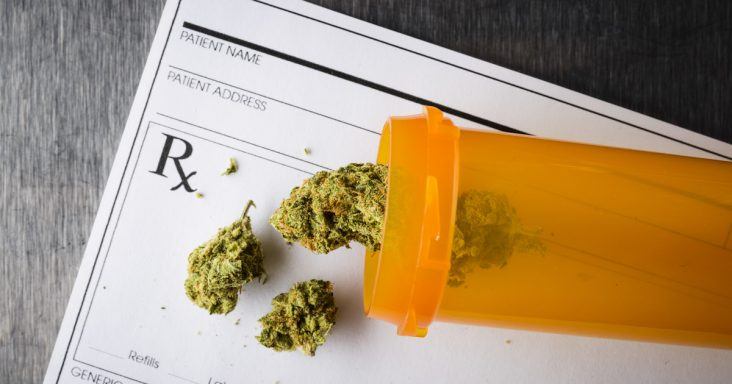Study: Cancer care providers uneasy with medical marijuana
by September 29, 2019 12:21 pm 992 views

A recent study showed 73% of oncology providers believe medical marijuana provides benefits for cancer patients. But only 46% would be comfortable recommending the drug, according to a report by the University of Colorado Cancer Center. Key concerns included uncertainty about dosage, lack of knowledge on available products and where to purchase them and possible interactions with other medications.
“I think in some cases we’re missing out on providing a useful tool,” said Ashley Glode, an assistant pharmacy professor and author of the study. “Providers think it has benefit but aren’t comfortable recommending it.”
The survey included 172 oncology providers: 48 advanced practice providers, 47 physicians, 53 registered nurses, 17 pharmacists and seven other providers. While 81.5% believe cannabis should be available as a prescription drug, 60.1% had not recommended its use to any cancer patient in the past six months, and 54.3% weren’t comfortable recommending or suggesting it to a patient to manage cancer-related symptoms. Overall, 83% were concerned about the dosing, 73.1% had limited knowledge of available products and where to buy them, and 64.9% were worried about interactions with other medications.
However, 79% of respondents said educational programs during training and continuing education courses could increase their comfort level in recommending medical marijuana. Also, the majority of providers said more clinical data and endorsed clinical guidelines would improve their comfort level in recommending it. A total of 68% of providers said they received information about medical marijuana from their patients, 55% got it from the media and 53% learned about it from other providers.
Glode noted most providers in the survey didn’t train in a state where medical marijuana was legal and emphasized the need for training. Some providers who worked in academic medical centers were concerned about whether recommending medical marijuana could put federal funding at risk. Marijuana remains a Schedule 1 drug, along with drugs such as heroin, LSD and ecstasy, according to the U.S. Drug Enforcement Agency.
“Still, the biggest issue that providers saw is the lack of certainty in dosing,” Glode said. “The issue is it’s not regulated. A dispensary might say a product has this much THC and this much CBD, but no one is testing that for sure. Limited data suggest that patients should start low and slow, no more than 10 mg of THC in a dose, but we don’t know that’s what patients are really getting. Then, from a consumption perspective, inhalation and smoking is the least preferred due to possible damage to the lung. So many doctors recommend edibles, oils and tinctures, but we still don’t have good data comparing dosage across these forms.
“Knowledge is an issue,” Glode added. “If we could do a better job educating our healthcare providers, it might be used more often and potentially more safely.”
When asked about speaking to an oncology provider or company executive about medical marijuana and this study, multiple healthcare providers in Northwest Arkansas, including Highlands Oncology Group, declined. Also, area healthcare providers listed on a website showing they recommend medical marijuana to patients couldn’t be reached for comment. Mercy Northwest responded to an interview request with the following statement:
“Because Mercy places the highest priority on patient safety and quality care, we are not recommending medical marijuana treatment for our patients. Mercy believes there is insufficient medical and scientific research on the benefits and risk of cannabis products as part of medical treatment. In addition, the U.S. Food and Drug Administration hasn’t determined the safety or efficacy of cannabis.”
Arkansas voters in 2016 approved the use of medical marijuana. As of Sept. 6, the Arkansas Department of Health had issued 21,208 medical marijuana cards to qualified patients and caregivers. There are four dispensaries licensed in Northwest Arkansas: Acanza Health Group at 2733 N. McConnell Ave. and Valentine Holdings at 3390 Martin Luther King Jr. Blvd. in Fayetteville, and Arkansas Medicinal Source Patient Center at 406 Razorback Drive and The Releaf Center at 9400 McNelly Road in Bentonville. Acanza Health Group opened Sept. 14. Valentine Holdings has yet to open.
